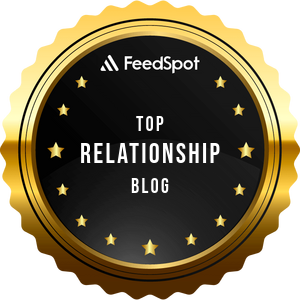
2021 has been a year full of change and challenges for many. We hope our expert-written Relationship Blogs, Relationship Tips, and Relationship Quizzes were there to support you throughout the journey this year.
Our mental health experts focus on various relationship topics to help you thrive in healthy, connected, and deeply loving relationships.
Please enjoy our Top Ten Relationship Blogs, Relationship Tips, and Relationship Quizzes for 2021!
- Ideal Partner Qualities - What to Look for in a Partner
- Neurodiverse Marriage: How to Love a Partner with Autism
- The Art of Being in a Loving Adult Relationship - Six Essential Skills
- Forgiveness in Relationships: How to Practice
- How to Get Your Emotional Needs Met in Your Relationship
- Red flags: Red Flags in a Relationship - 13 Toxic Warning Signs to Watch Out For
- Is My Marriage Over? Ask Yourself These Important Questions First
- What Destroys Most Relationships? 4 Things That Can Ruin Everything
- Signs Your Partner is Emotionally Unavailable
- Marriage Myths and Realities: 12 Common Misconceptions Debunked
Ideal Partner Qualities - What to Look for in a Partner

What ARE you looking for in a potential partner? For many of you, it may be easier to come up with a list of things you know you don't want than what you are looking for in a potential partner ...and we can start there.
Many people are often not aware of how we are attracted to our partners and that most of it is an unconscious process. Imago Relationship Therapy, developed by Harville Hendrix, PhD and Helen LaKelly Hunt, PhD, states that we are attracted to our early caretakers' positive and negative traits and search for those same traits in our potential partners. This explains that when we find our partner, we often feel "at home" with them, as it feels familiar to us.
As humans, we are wired for connection, and it is within relationships that we grow and learn about both ourselves and our partners as we continue to make sense of the world around us. We essentially hire our partner to be the person who both triggers our wounding and who is also the very person who can help us heal from those triggers. This is the premise of the work we do as Imago Relationship Therapists and why I love the work I do.
Now that I've given you a small glimpse into a partner's unconscious selection let's turn to the conscious factors we can control. When you list the traits or qualities you are NOT looking for, do you come up with a list that can span two to three pages in length? If so, that's not surprising. Why is it more challenging to pinpoint what you ARE looking for specifically?
Neurodiverse Marriage: How to Love a Partner with Autism

On my first date with my husband — we've been partners now for 28 years – he asked me, "Are we on a date?" And the second date, he asked, "Are we still dating?"
I thought it was so sweet and endearing then. It took me nearly 17 years to realize what was going on was typical of someone with Asperger's syndrome (AS). The syndrome wasn't even a diagnosis back then. Today it is considered a high-functioning form of autism.
Aspergers presents in myriad ways, including an obsession with details, social awkwardness, a seeming inability to recognize others' feelings or reactions, and a flat, outward expression with few physical cues about what the AS person feels.
I had no clue about this when I fell in love with my husband. I just found his lack of drama and histrionics calming, a welcome relief from my own family's constant antics and manipulations. He balanced me nicely: I was outgoing and verbally engaging, and he was quiet with no problem of being alone. I was animated. He was peaceful.
It wasn't until we decided to move in together that I began to feel the tension around how truly different we were from one another. At the time, I had a dusty and cluttered little apartment. My husband had a big house with a living room that looked to me like a hotel lobby — Georgian-style chairs carefully chosen for their shape and upholstery, tables placed just so. He wouldn't allow me to put any of my stuff anywhere outside of a single room he had designated as mine... I wasn't allowed even to put a nail in a wall!
The Art of Being in a Loving Adult Relationship - Six Essential Skills

Many people experience difficulty in adult romantic relationships, even when they do very well in work or friendship relationships. In a romantic relationship, you can find yourself feeling emotional extremes that simply do not exist in any other area of your life.
You may experience extreme emotions, such as:
-
Intense love and connection
-
Suspiciousness
-
Disappointment
-
Neediness
-
Entitlement
Most mental health experts agree that feeling these deep emotions are related to your early childhood bonds experienced from family life. These are deeply ingrained emotional memories, and they can emerge when you least expect them. Sometimes it can be a nuance or a tone in your partner's voice with an intensity that reminds you more realistically of your past relationships.
Forgiveness in Relationships: How to Practice

We all make mistakes in life; most people have regrets, and the power of forgiveness helps you move forward. This applies to all relationships, especially with your partner.
Holding grudges and hurling insults across a room during an argument won't deepen your love. It will only create a deep divide between you and your partner. Learning to practice forgiveness in your relationships helps you understand yourself better and what causes you pain, improves your communication, teaches you empathy, tears down walls of resentment, and so much more.
How to Practice Forgiveness in Relationships - like anything worthy in life, it requires mindfulness, the willingness to let go of the ego, and openness to change for personal growth.
Relationships, like people, can fall into patterns, some good, others not so good. Without forgiveness, relationships will erode over time and shut down opportunities for healthy communication.
How to Get Your Emotional Needs Met in Your Relationship

Being in a committed long-term relationship is one of the most challenging things you will ever do in your life. Individuals in a relationship can be categorized into two very distinct groups. You can think of it as "Pursuers" and "Withdrawers." Or another term we use is called "Minimizers" and "Maximizers."
So, what are the Minimizers and Maximizers? It's best explained as one partner who is eternally disappointed while the other partner lives in fear of perpetually disappointing their partner. It all boils down to the same fear for both partners.
These two statements best example the core of the relationship struggle:
-
"I am never going to be enough for you."
-
"You are never going to give me what I truly need."
Looking at How Your Relationship Functions - when one person in the relationship is comfortable addressing conflicts, disruptions, or life in general head-on by demanding energy and critical emotions, it is not surprising that the other person responds by withdrawing, shutting down, or avoiding.
Red flags: Red Flags in a Relationship - 13 Toxic Warning Signs to Watch Out For

Most of us long to be in a loving, committed relationship. So if we are starting to get some internal signals that tell us our current partner might not be the right person for us, the instinct is to close our eyes to the things we see, to start rationalizing and stay in place, stuck.
However, being willing to see the truth with open eyes is one of the keys to not staying with someone you shouldn't and making a mess out of your life because you're too afraid to say goodbye.
So what are some of the signs that you are in a dead-end relationship? There are 13 Warning Signs and Red Flags of a Toxic Relationship.
Is My Marriage Over? Ask Yourself These Important Questions First

There is a common misconnection when a couple reaches a breaking point in their marriage. They believe there are only two choices to make. The first choice is to continue living day in and day out in an unhappy home and unhappy marriage. The second choice is to leave the marriage, go your separate ways and file for divorce from your partner.
However, for the majority of couples, there is also an important and life-changing third choice. When a couple is truly unhappy, and at a breaking point, the third choice is to seek expert help. Sitting down with a professional trained to guide couples through often difficult conversations will help you both learn to remove the blame, shame, and criticism common in negative relationship patterns and transform your relationship.
Improving your relationship and making positive changes for both partners, make no mistake, take hard work, determination, and time working closely with an expert marriage counselor. It's essential to select a counselor trained to work with couples, one that will provide a safe, unbiased environment to identify specific behaviors interfering in your relationship.
Think of it as if you were under the weather and needed expert help from a doctor. Marriage therapists are much the same, experts who help care for and guide people in pain.
What Destroys Most Relationships? 4 Things That Can Ruin Everything

When the love is deep, many couples feel their relationship will last forever. You and your partner both love one another deeply, and that will stand the test of time. Sure, you'll go through challenges and obstacles in life, but you'll do it together with your deep love sustaining you both. Right?
But, eventually, if you don't know how to navigate all the roadblocks you'll encounter as a couple on life's journey, you might just crash and burn. So, it's vital to learn how to steer the relationship away from any danger zones. When you know how to work together as a team to drive right past the danger zones, it will sustain your relationship to continue to grow and thrive.
Let’s look at the top four most common issues couples face that ultimately destroys their relationship so you can learn how to avoid them and drive on past with smooth sailing.
Signs Your Partner is Emotionally Unavailable

It takes time to get to know someone - that's what the dating period offers us all. You really can't rush things, either. Things need air and space to bloom. It's also important to know when to commit to the relationship or go your separate ways.
At the beginning of a relationship, there's so much promise and excitement. Our partner may have initially come in very strong, which opens up our dreams for the future. This can make it hard to tell ourselves the truth down the road if things are no longer going well. But a vote for yourself is one in which you are willing to see the truth - and ready to go through loss - to avoid a much bigger heartache later.
There are some signs to look out for to determine if your partner is NOT emotionally invested in the relationship.
Marriage Myths and Realities: 12 Common Misconceptions Debunked

We are bombarded by unrealistic portrayals of human relationships from a young age. It's no wonder that many modern Americans are confused about love. While the romances in movies like Sleeping Beauty and 10 Things I Hate about You are entertaining, they are far from realistic.
Far too often, couples come to me threatening to throw in the towel because their relationship isn't fairy tale perfect or romantic comedy carefree. They formed misconceptions about love, relationships, and marriage based on fictional depictions from movies, TV shows, and magazines. The misconceptions can be incredibly destructive to a relationship by creating unreasonable expectations that will lead to confusion, frustration, and sorrow.
If you want your relationship to succeed, your expectations must be based on reality rather than fiction. To help you see your relationship in a new light, I've listed and debunked twelve of the most common and destructive relationship myths below.
**An Imago Relationship Quiz for you too! Emotionally Healthy Relationships**
We look forward to sharing more thought-provoking and helpful blogs and tips with you in 2022! Please share and subscribe, and we'll be there to support you along your relationship journey.
Check out our virtual and in-person Imago Relationships Workshops and Imago Relationships Therapy.
Discover more about Imago with our Imago Professional Membership, Imago Professional Facilitators, Imago Professional Training, and Imago Insights Education.
Connect. Transform. Thrive.
Imago Relationships


